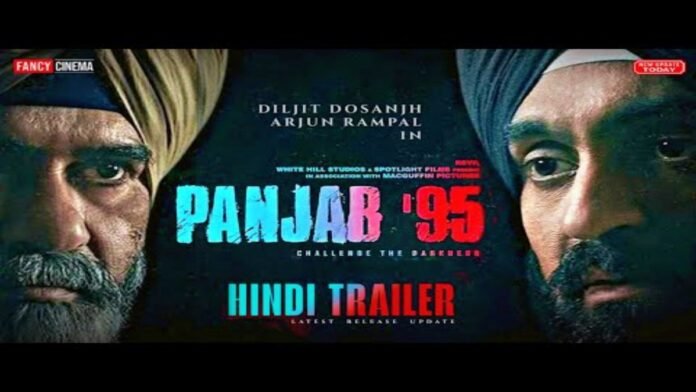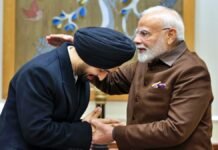
Key Points
- Diljit Dosanjh’s ‘Punjab 95’ faces demands for 127 cuts from the censor board, including major changes to title and dialogues.
- The film, based on human rights activist Jaswant Singh Khalra’s life, is at the center of a heated debate on creative freedom and censorship in India.
- CBFC has objected to the use of ‘Punjab’ in the title and references to ‘Punjab Police’ and former Prime Minister Indira Gandhi.
- Director Honey Trehan threatens to remove his name from the project if the cuts are enforced.
- Jaswant Singh Khalra’s family, especially his wife Paramjit Kaur Khalra, strongly opposes the censorship, asserting the film’s authenticity and intent.
- ‘Punjab 95’ highlights the real-life struggle of Khalra, who exposed over 25,000 disappearances during Punjab’s turbulent 1990s.
New Delhi: Diljit Dosanjh’s much-anticipated film ‘Punjab 95’ has landed in the eye of a censorship storm. The Central Board of Film Certification (CBFC) has demanded a staggering 127 cuts for the film to be cleared for release. These cuts go beyond mere dialogues, targeting references to the film’s title, characters, and even historical figures. The board’s actions have sparked a wider debate about the boundaries of creative expression and historical storytelling in Indian cinema.
What Are the CBFC’s Objections?
- Title Change: The CBFC has insisted on removing the word ‘Punjab’ from the film’s title, a move that has baffled the filmmakers given the story’s deep roots in Punjab’s history.
- Dialogue and Character Edits: Scenes referencing ‘Punjab Police’ must be altered to just ‘Police’, and all mentions of former Prime Minister Indira Gandhi are to be excised.
- Scale of Cuts: The 127 suggested cuts threaten to fundamentally alter the narrative, potentially stripping the film of its context and impact.
Director Honey Trehan has publicly voiced his frustration, stating that releasing the film after such extensive edits would destroy its core message. He has even said he would remove his name from the project if the board’s demands are not reconsidered.
Family’s Response: Standing by the Truth
Paramjit Kaur Khalra, wife of the late Jaswant Singh Khalra, has strongly condemned the censor board’s decision. She emphasized that the film was made with the full consent and involvement of the Khalra family, and that it contains nothing objectionable. According to her, the film is a tribute to Jaswant Singh Khalra’s sacrifice and should be released without any cuts.
The Real Story Behind ‘Punjab 95’
‘Punjab 95’ is not a work of fiction. It chronicles the life and work of Jaswant Singh Khalra, a human rights activist who uncovered the enforced disappearances of over 25,000 people in Punjab during the 1990s—a period marked by terrorism, state violence, and human rights abuses. Khalra’s fearless investigation brought global attention to the crisis, but it also led to his abduction and murder.
Why Is the Film Important?
- Historical Relevance: The film sheds light on a dark chapter of Indian history that is often overlooked or suppressed.
- Human Rights Focus: By telling Khalra’s story, ‘Punjab 95’ aims to honor the memory of thousands of missing individuals and the courage of those who fought for justice.
- Freedom of Expression: The controversy has reignited discussions about censorship, artistic freedom, and the responsibility of filmmakers to depict real events.
Industry and Public Reactions
The film’s censorship battle has drawn sharp reactions from the film industry, human rights groups, and the public. Many see the CBFC’s demands as an overreach that sets a dangerous precedent for biographical and issue-based cinema in India. The debate continues over where to draw the line between sensitivity, national interest, and the right to tell the truth.
‘Punjab 95’ stands as a testament to the power of cinema to confront uncomfortable truths. Whether it will reach audiences in its intended form remains uncertain, but the conversation it has sparked is already making an impact.





















































